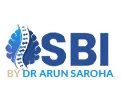What is Degenerative Disc Disease?
Degenerative Disc Disease (DDD) is a condition that affects the spine, leading to potential discomfort, chronic pain, and reduced mobility. Despite its name, DDD is not a disease per se but a natural progression of the spine's aging process. This article delves into the intricacies of DDD, its symptoms, causes, and effective management strategies to help those affected lead a more comfortable life.
What Causes Degenerative Disc Disease?
The primary cause of DDD is the natural aging process of the spinal discs. These discs act as shock absorbers between the vertebrae, providing flexibility and support to the spine. Over time, these discs can lose hydration, reducing their ability to cushion the vertebrae effectively. Factors that can accelerate this process include genetics, lifestyle choices, and physical strain.
Symptoms and Diagnosis
Symptoms of DDD can vary widely but often include:
Chronic back or neck pain
Pain that worsens with certain activities or positions
Numbness or tingling in the extremities
Reduced flexibility or mobility
Diagnosis typically involves a physical examination, medical history review, and imaging tests such as MRI or CT scans to assess the condition of the spinal discs.
Managing Degenerative Disc Disease
Conservative Treatments
Most individuals with DDD can manage their symptoms effectively through conservative treatments, including:
Physical therapy: Tailored exercises can strengthen the muscles supporting the spine, improving flexibility and reducing pain.
Pain management: Over-the-counter or prescription medications can help manage pain and inflammation.
Lifestyle modifications: Maintaining a healthy weight, quitting smoking, and adopting an ergonomic workspace can alleviate strain on the spine.
Advanced Interventions
In cases where conservative treatments are not effective, more advanced interventions may be considered:
Injections: Corticosteroid injections can provide temporary relief from inflammation and pain.
Surgery: Surgical options, such as spinal fusion or disc replacement, may be explored in severe cases.
Preventive Measures
Preventing the progression of DDD involves adopting a spine-friendly lifestyle:
Regular exercise: Activities that strengthen the core and back muscles can support the spine, reducing the risk of degeneration.
Proper posture: Maintaining correct posture, especially while sitting for extended periods, can minimize spinal strain.
Healthy diet: A diet rich in anti-inflammatory foods and sufficient hydration can support disc health.
Conclusion
Degenerative Disc Disease is a prevalent condition with the potential to significantly impact the quality of life. Gaining an understanding of its causes, symptoms, and available management strategies is crucial for those affected, empowering them to navigate this condition with greater efficacy. Through the adoption of preventive measures and the pursuit of appropriate treatment, individuals can effectively mitigate the impacts of DDD and maintain their spinal health over the long term.
In conclusion, facing the challenges of Degenerative Disc Disease head-on with a proactive management and prevention strategy can lead to highly positive outcomes. This approach enables individuals to lead active and fulfilling lives, notwithstanding the condition. For those seeking Degenerative Disc Disease treatment in India, Dr. Arun Saroha at Spine and Brain India stands out as the best spine surgeon in India, offering specialized care and advanced treatment options tailored to meet the unique needs of each patient. With expert care, it's possible to navigate the complexities of DDD and embrace a healthier, more vibrant future.



